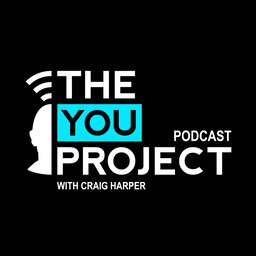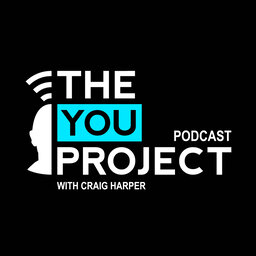#1655 Reconnecting With Your Body - Dr. Bill Sullivan
The human body is smart, incredibly adaptable and resilient, but it's not indestructible. And while it's always chatting with us (the human in the body) and doing its best to guide, inform and warn, sadly, we seem to be listening less and less, and drowning out the biological wisdom with a curious range of numbing agents and avoidance strategies; pain killers, anti-inflammatories, booze, junk food, recreational drugs and an ever-increasing choice of dopamine-providing distractions. *Bill Sullivan, Ph.D., is the author of one of my favourite books; 'Pleased to Meet Me: Genes, Germs, and the Curious Forces That Make Us Who We Are'. Enjoy.
In 1 playlist(s)
The You Project
The You Project is a 30-90 minute dose of inspiration and education hosted by Craig Harper with grea…Social links
Follow podcast
Recent clips

#2109 Discomfort as a Path to Comfort - Harps & Tiff
41:11

#2108 Can We Change the Way we Think? - Harps
30:54

#2107 What's My Why? (Unpacked) - Harps
25:53
 The You Project
The You Project